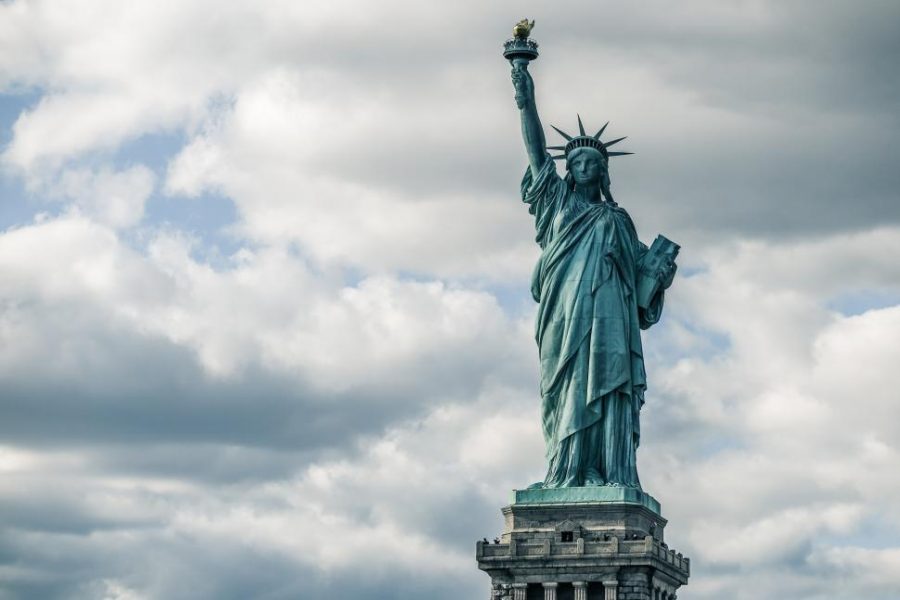Gary Johnson: On the Issues
Candidate: Gary Johnson
Running Mate: Bill Weld
Party: Libertarian Party
This election year has renewed some old concerns about choosing between a Democrat or a Republican every election. Some ambitious alternative candidates hope to capitalize on the tension this year. Gary Johnson is one such candidate, along with his running mate Bill Weld. Johnson is a member of the Libertarian party, whose platform is characterized by a permissive attitude toward social and economic policy. A libertarian opposes government discrimination. The libertarian party sees regulation of a private individual’s personal choices, including the choice to do drugs and to love someone of the same sex, as tyranny of the highest order. Furthermore, they strongly oppose any government control in the economy or business. In that way, they have the social attitude of a liberal Democrat, but with the fiscal attitude of a conservative Republican. This “little bit of both” policy has typically alienated partisan voters since the party’s foundation in 1971. Now, with the two main party candidates rapidly polarizing themselves to the point of gridlock, a small but growing collection of voters from every political leaning support the fresh Libertarian perspective.
Crime
Gary Johnson previously served as Governor of New Mexico for two terms, and his actions as governor proved that he is willing to act on his beliefs. His platform emphasises domestic policy over foreign, though he claims not to be an isolationist. According to Johnson, the war on drugs, police discrimination, and crime are all related. Johnson also spoke in opposition to New York’s stop and frisk law, often comparing it to an attack on citizens’ Constitutional rights. Gary Johnson clarified in an interview, “Half of all crime is drug-related. If we legalized drugs, we would destroy the environment that allows and even encourages all those crimes.”
In addition, he believes discrimination is a serious issue in police misconduct. “I’ll come back to the drug war,” Johnson said. “If you’re of color, there’s a four times more likelihood that you’ll end up behind bars than if you’re not of color.”
Foreign Policy
At the forefront of Johnson’s foreign policy rhetoric is non-intervention. He does not want to involve America in conflicts overseas. Johnson opposes any American intervention in the Middle East, justifying his stance by asserting that American interventionism was a factor in the rise of ISIS. He opposed the war in Iraq and has not changed this view since the advent of the conflict.
A justified conflict, for Johnson, ends when there is no longer threat to the U.S. “[We] should have brought our troops [in Afghanistan] home years ago, rather than engaging in the doomed-to-fail and unjustified nation-building that continues today,” said Johnson.
Johnson has often criticized the immigration policy of the other candidates. He prioritizes deporting and “keeping out criminals and terrorists” only. He does not want to build a wall or a fence, for he asserts it will “only produce taller ladders.” As the former governor of a border state, Johnson called his approach to immigration “common sense” and non-discriminatory.
Taxes
While he has acknowledged the threat of business related problems, such as campaign finance and climate change, Johnson thinks government should intervene very little in businesses or markets.
Johnson advocates radical tax reform; he wishes to abolish the IRS and all federal income and corporate taxes and replace them with a 23 percent federal sales tax. As governor of New Mexico, Johnson acted somewhat tepidly on his commitment to lowering taxes. He reduced the state of New Mexico’s income tax from eight and a half percent to just eight percent.
“Today’s federal tax code does all the wrong things,” said Johnson. “It penalizes productivity, savings and investment, while rewarding inefficiency and designating winners and losers according to political whim.”
Healthcare
When it comes to healthcare, Johnson wishes to leave medicare and medicaid reforms to states. He does not think the Affordable Care Act has made care affordable at all, and has even referred to it as “insanity.” According to Johnson, The less the government spends on programs like healthcare, the better.
Reform of the Social Security program is a priority for Johnson. In several interviews, he stated his plans to raise the retirement age, giving multiple ages between 72 and 75. He also has considered privatizing “parts of social security, if not all.”
Abortion
In regards to social issues, government size and scope threaten civil rights and personal liberty in Johnson’s opinion; he differs from other like-minded candidates in his support for abortion rights. Johnson supported Supreme Court decisions such as Casey v. Planned Parenthood, calling them “law of the land.”
Gun Control
Gary Johnson is a supporter of gun rights and sees gun control as an attack on the Second Amendment. He has gone on record describing assault weapon bans as an attack on the owners. On background checks, Johnson thinks that in order to be safe
“We should be open to a discussion on keeping guns out of the hands of the mentally ill,” said Johnson.







